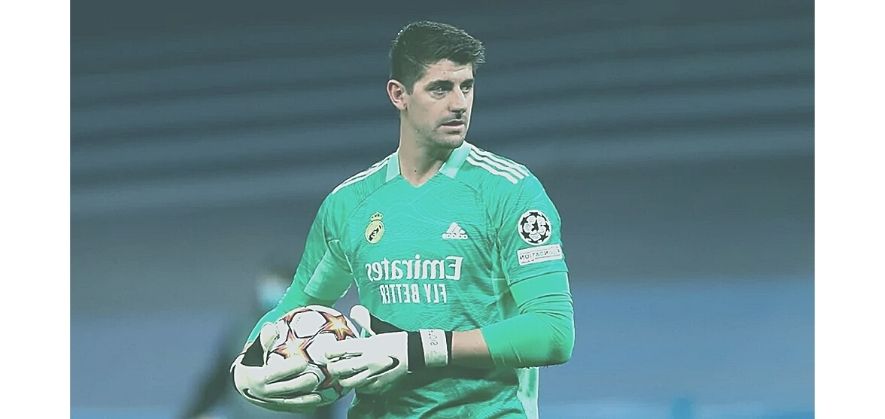Goalkeeper gloves are an integral part of soccer’s modern game.
Incremental improvements to manufacturing technology and shipping logistics means that casual players can get themselves a quality pair for a very affordable price.
But that’s not really what this article intends to cover.
Instead, the lens of this post will be focused directly on professional goalkeepers and their glove wearing preferences.
More particularly, this piece will respond to the question of whether professional goalkeepers get new gloves every game.
If you think about it for just a second, you’ll quickly realize that it’s quite an intelligent question for a soccer fan to ask!
After all, this subject isn’t something that’s really spoken about in traditional media outlets nor by the soccer teams themselves.
Now, there’s no one-size fits all answer here.
But if we were to try and give an apt summary of this topic, it would read like this…
Some professional goalkeepers wear a new pair of gloves before every fixture, whilst there are other shot-stoppers who prefer to “break in” their gloves. The latter approach gives goalkeepers better grip on subsequent wears, enabling them to wear gloves a handful of times before a replacement pair is required.
How often do professional goalkeepers change their gloves?
You’re definitely going to need substantial evidence if you’re going to believe the answer that’s been stated above, right?
Well, research has been done and information regarding the glove use of two professional goalkeepers who play at the very highest level of the sport has been obtained.
Carry on reading to find out!
1. Thibaut Courtois – after every 3 to 4 games

Real Madrid’s first-choice goalkeeper Thibaut Courtois mentioned in an article here that he likes to change his goalkeeper gloves after every three or four matches.
Although depending on the quality of his on-pitch performances, he could decide to order another pair or carry on using the existing ones.
Here’s the exact quote:
“I change them every three or four games maybe. It depends. If you have good games then you like to continue with them. Maybe not so good games, then you change them.”
Source – Telegraph
From this you can see that professional goalkeepers use their own instinct as a reference point for making soccer-related decisions.
And it’s certainly not a bad approach to take, particularly because a goalkeeper of Courtois’ stature will have played hundreds of matches.
The Belgian international will have a pretty good sense of when his goalkeeper gloves are significantly worn, and from there it’s easy enough for him to place an order for a fresh pair.
On a slightly related note, we published an article on the specific goalkeeper gloves that Thibaut Courtois wears, so you can have a look at that and see if your purchase senses start to tingle!
In the meantime however, let’s discuss another goalkeeper and his glove rotation preferences.
2. Manuel Neuer – after a couple of games
Germany’s legendary shot stopper takes a more general approach when it comes to how often he changes his goalkeeper gloves.
The Bayern Munich man stated in a tutorial video released in 2019 that he doesn’t use a new pair of gloves every game.
Here’s the exact clip, including the appropriate timestamp:
So you can see that Neuer prefers to train once or twice with a new pair in order to bed them in, so that he can get the right level of grip for competitive match play.
After that he then makes a personal judgment after every game he plays; taking a moment to assess how much longer the gloves can hold up before the grip performance they offer him begins to dip.
We also have another interesting post on the goalkeeper gloves that Neuer currently wears, which might be worth checking out.
You’d certainly want to pick up a pair of gloves used by arguably the greatest goalkeeper of all time!
However, if Neuer’s selection doesn’t particularly inspire you, then you can check out this post on the gloves that professional goalkeepers wear.
It provides readers with a well-rounded out list of glove options that various soccer stars frequently use.
When should you replace goalkeeper gloves?
Goalkeeper gloves fit into the specific category of consumer products that perish over time.
What that means is that…
Through continual use, things like dirt, sweat and bacteria wear out the palm latex which helps goalkeepers grip onto soccer balls easily.
Goalkeeper glove latex begins to deteriorate right from the very moment you make use of it, which essentially means that greater amounts of training and match play lead to a shortened useful lifespan.
And speaking of lifespan, this article discussing how long your goalkeeper gloves should last offers fantastic insight into the sort of timeline you should be looking at right from the time of purchase.
If you’re too lazy to click on that link, don’t worry.
Essentially, a 10 to 15 game period is the rough ballpark that a dedicated pair of matchday goalkeeper gloves can be expected to hold up for.
This is backed up here by KeeperStop.com, who themselves posit that 12 to 14 games is the estimated duration of time that new goalkeeper gloves would offer excellent grip performance, prior to needing to be relegated to the practice ranks.
Ultimately, you’ll know when the time has come to replace your pair if you notice any of the following two things:
- Crumbling latex pieces
- Lost glove grip even after a good wash
Those factors are the tell-tale signs that your pair of goalkeeper gloves has reached its final destination.
So, you can act accordingly by purchasing another new pair of the best goalkeeper gloves once you’re ready to.
Closing thoughts
From this brief article you’ll have learnt that…
Most professional goalkeepers tend to wear new gloves for a handful of games before requesting a replacement pair. And although it’s quite rare to witness, some goalkeepers like to switch their gloves before every fixture.
In the end, the choice all comes down to personal preference.
If you’ve got the budget to be able to afford a new pair every couple of weeks, then you won’t feel the financial pinch of replacing a slightly worn out pair.
If you enjoy the content that I create and would like to buy me a coffee, then I’d really appreciate it!
Any money that I earn through this donation will be re-invested into more content for this website.
Additionally, by sending in a donation you’ll also receive a copy of my recently released 190+ page eBook on Soccer Ball Care, as well as be subscribed to our mailing list where you’ll be regularly informed on the latest developments concerning the Soccer Whizz blog.
- Future Icons: Europe’s Emerging Midfield Maestros Set for Glory - December 4, 2023
- Kickstarting a Revolution: How Soccer Transformed the United States Over the Last Four Years - October 7, 2023
- 4-1-4-1 Soccer Formation [Analysis] - September 23, 2023

